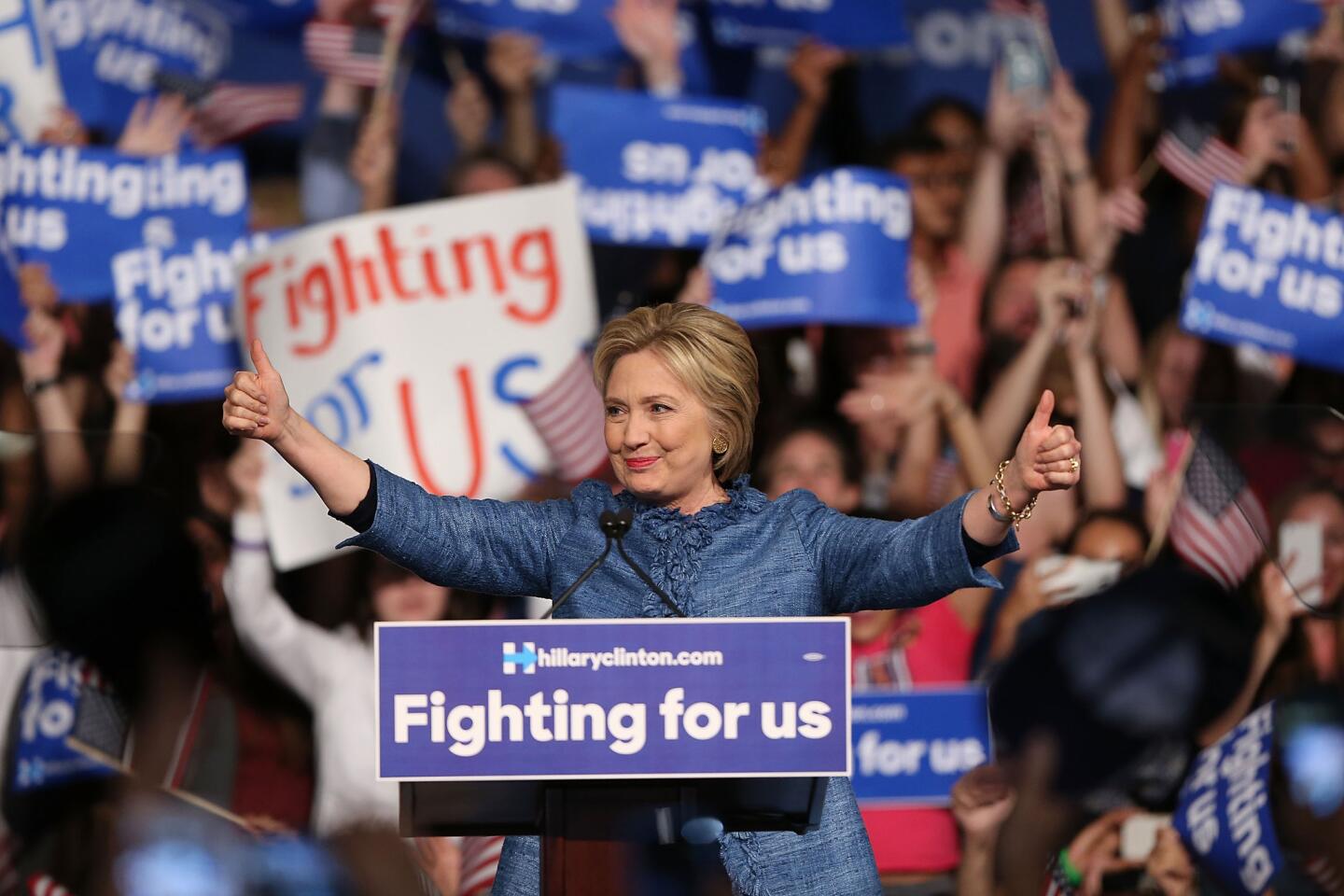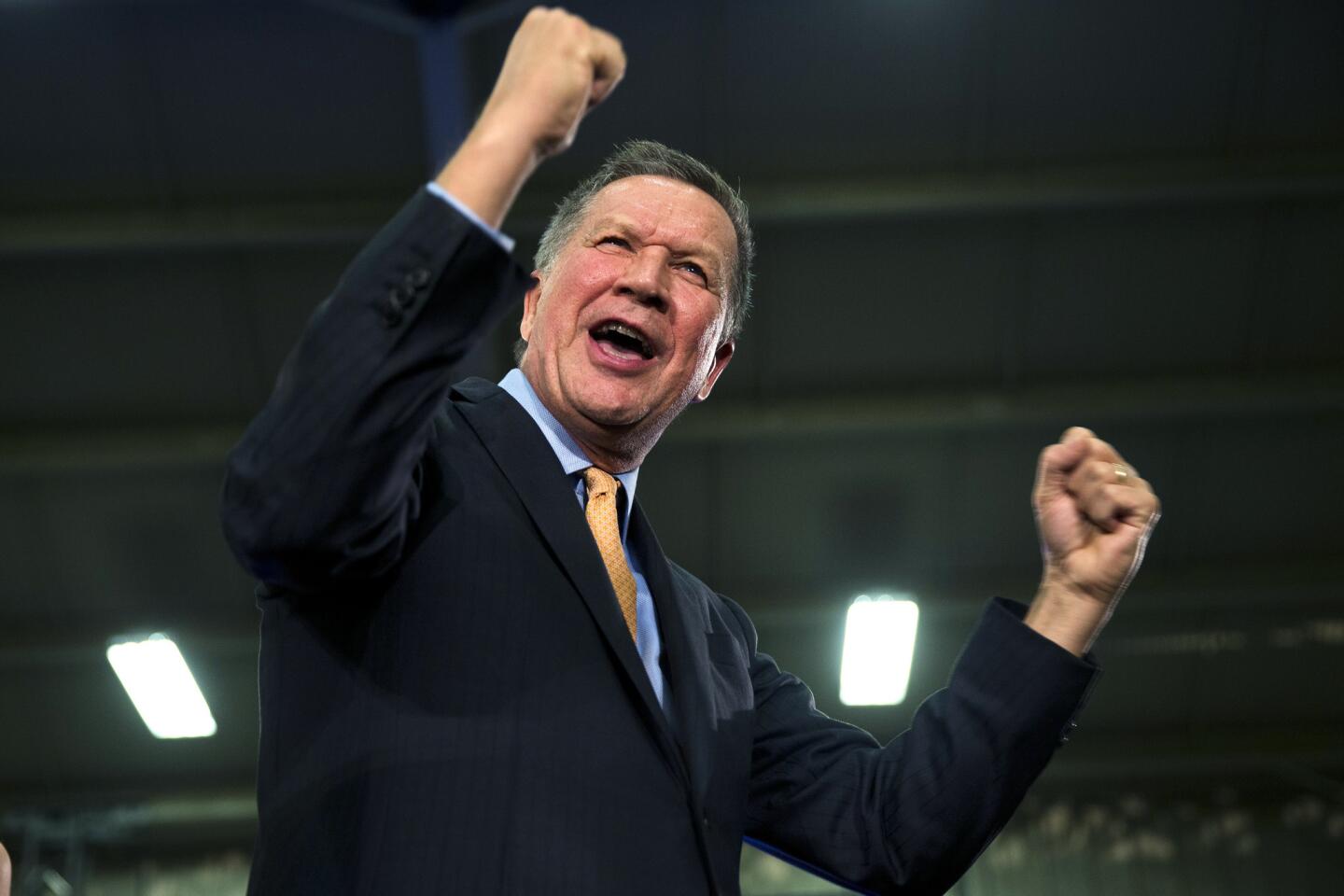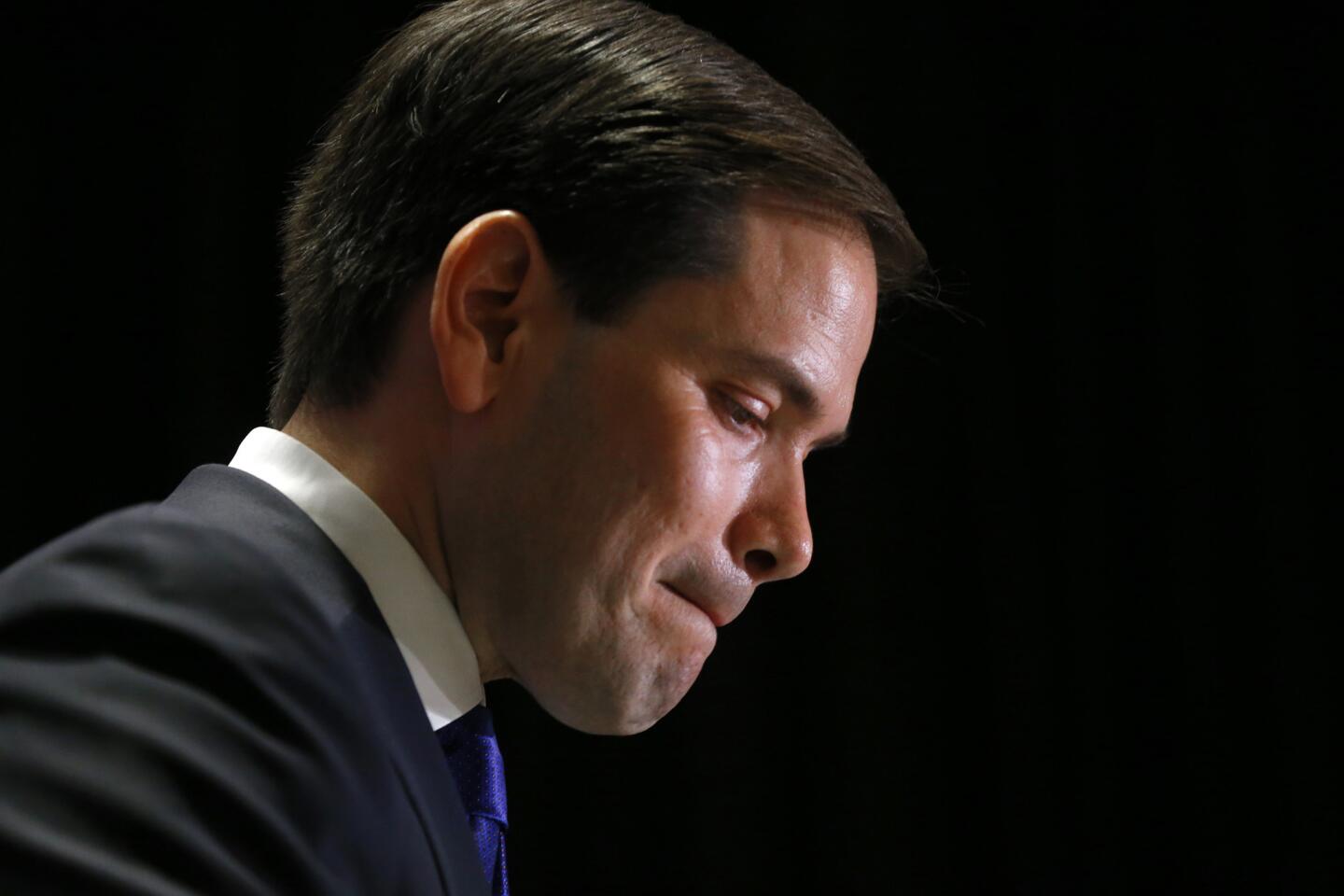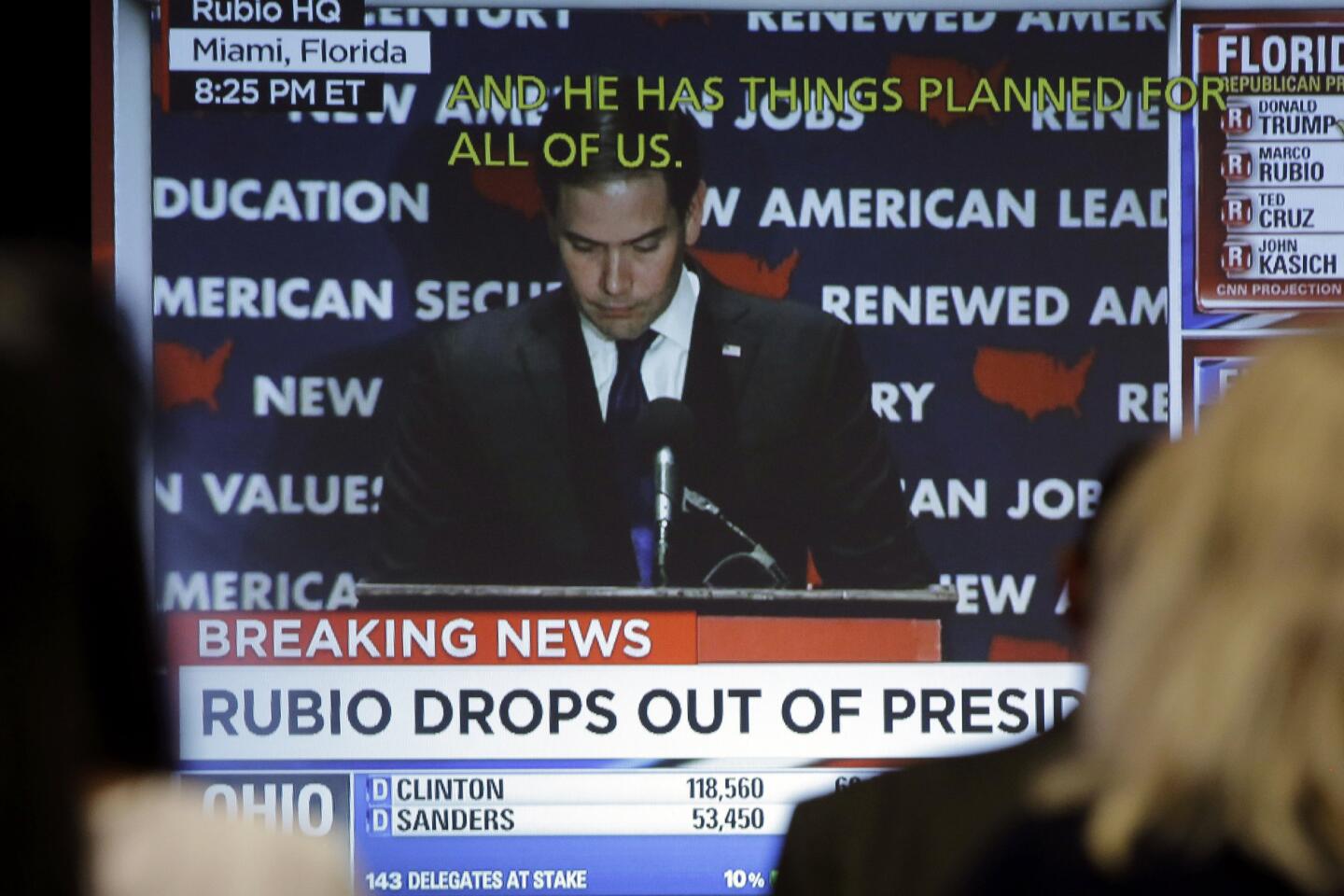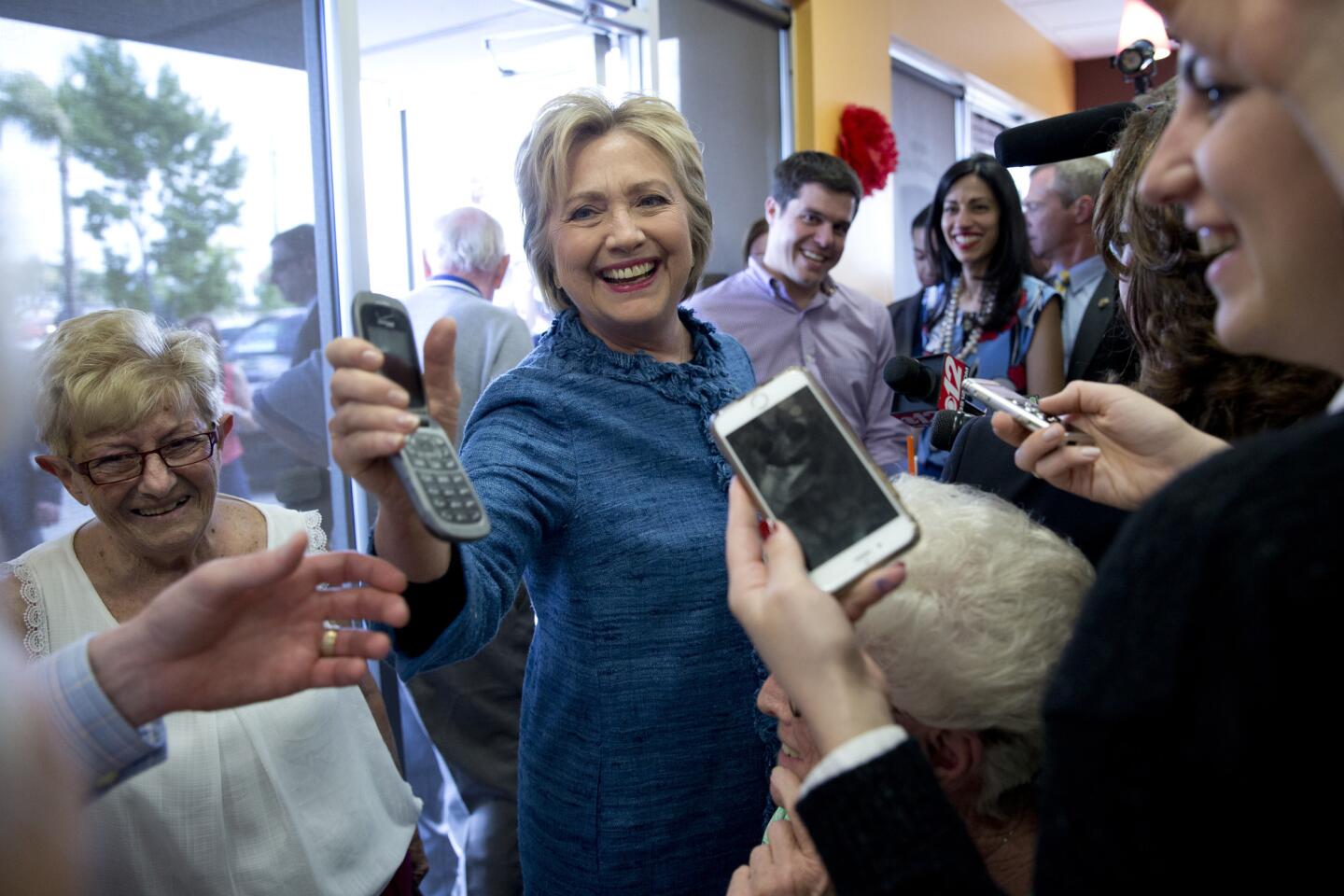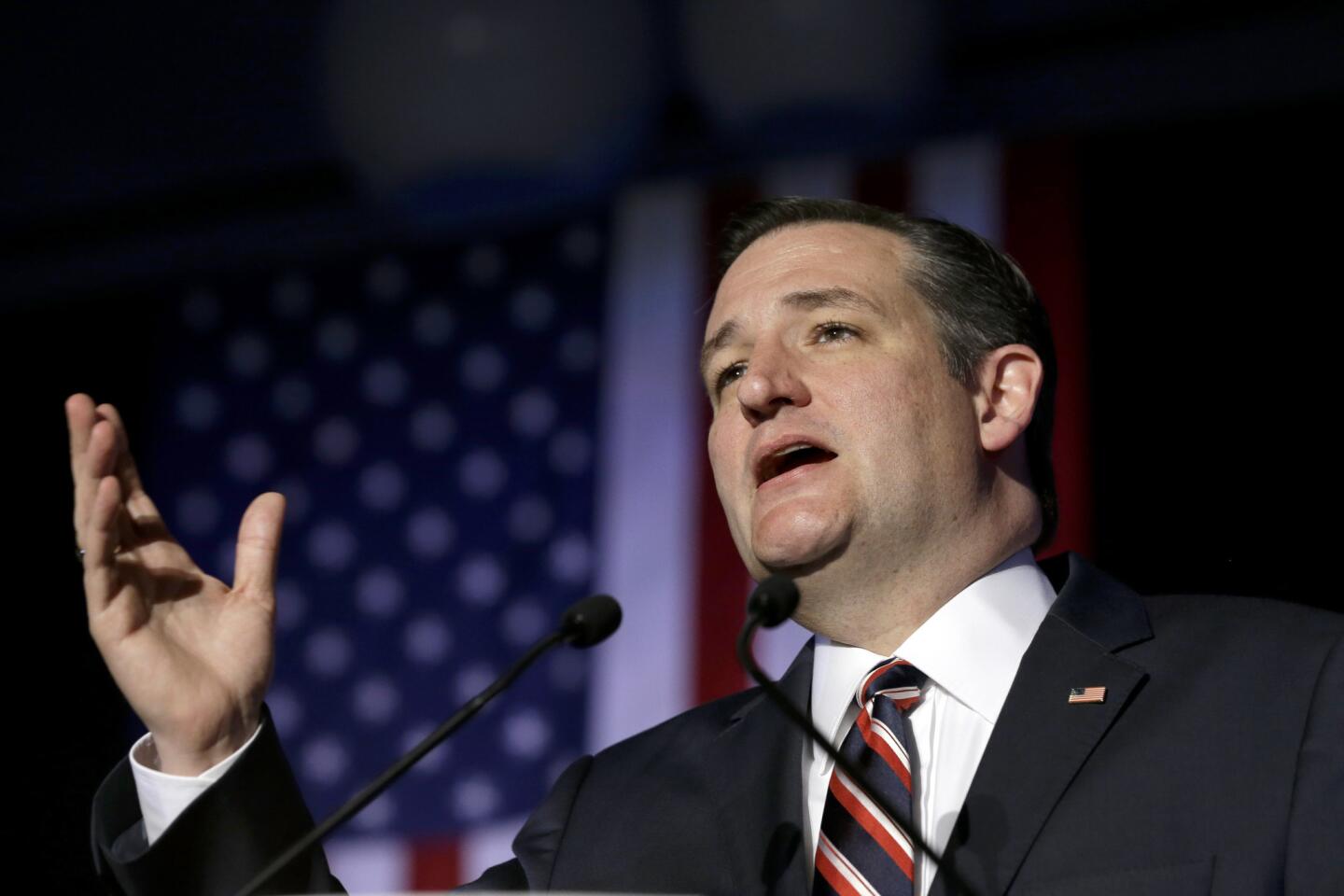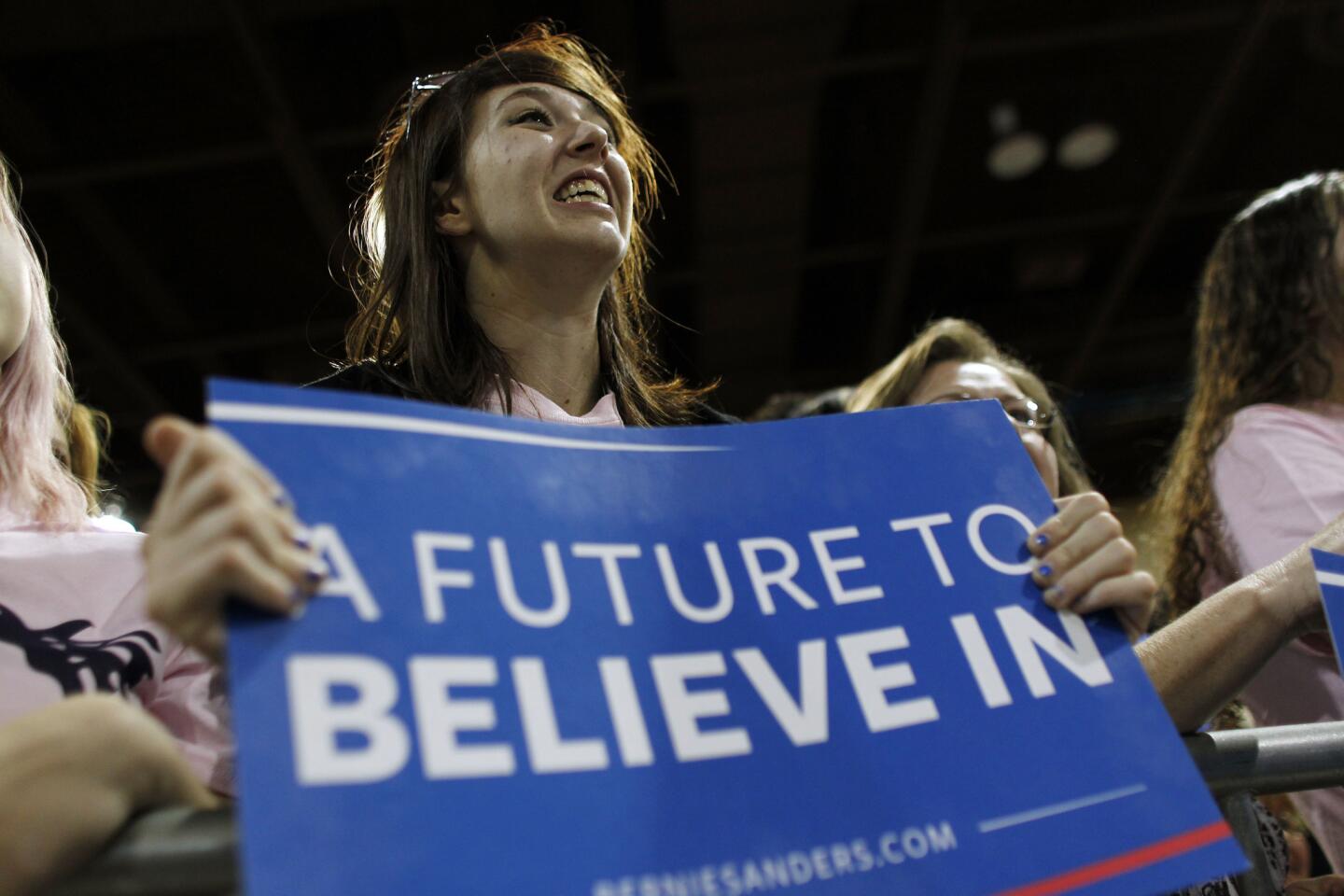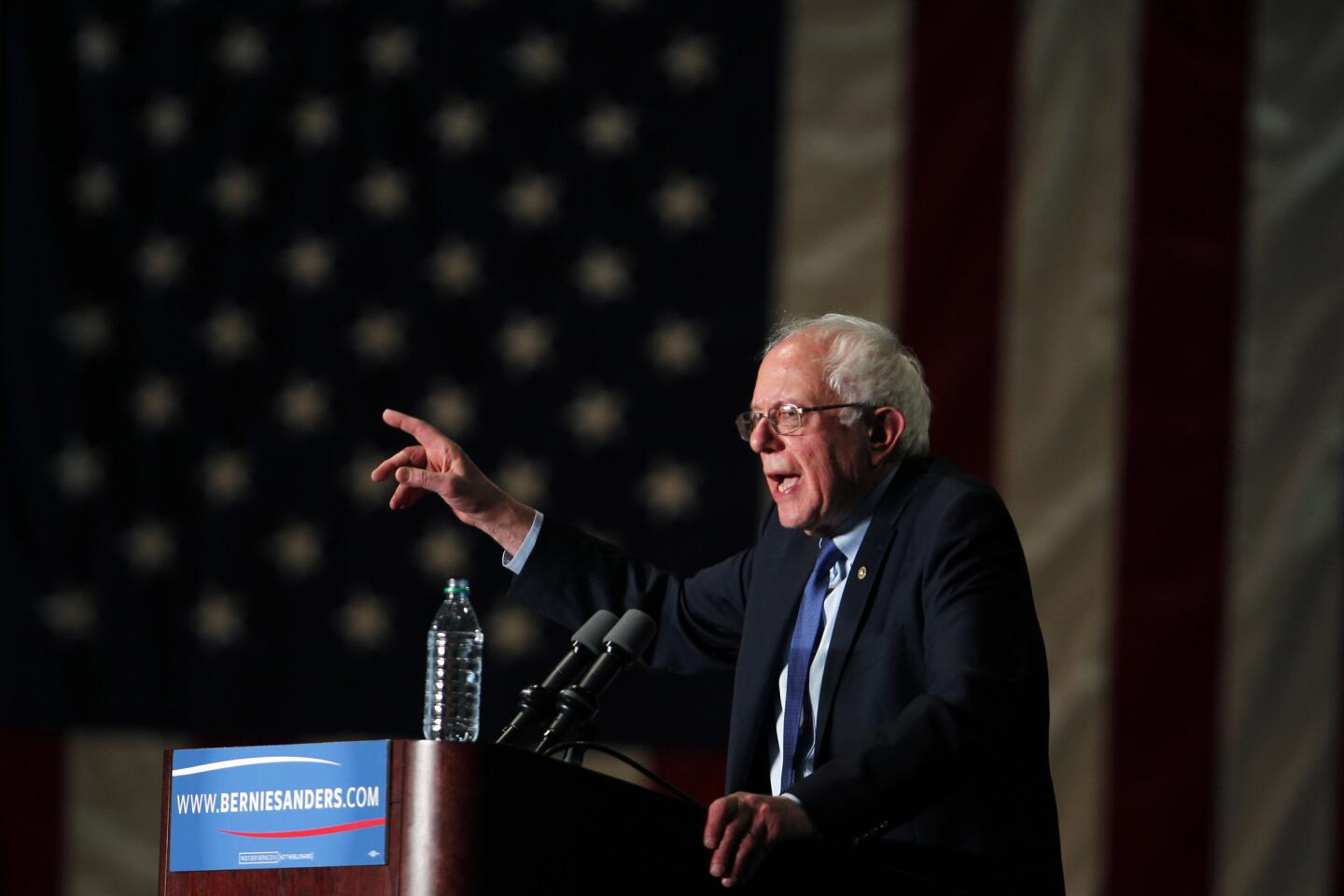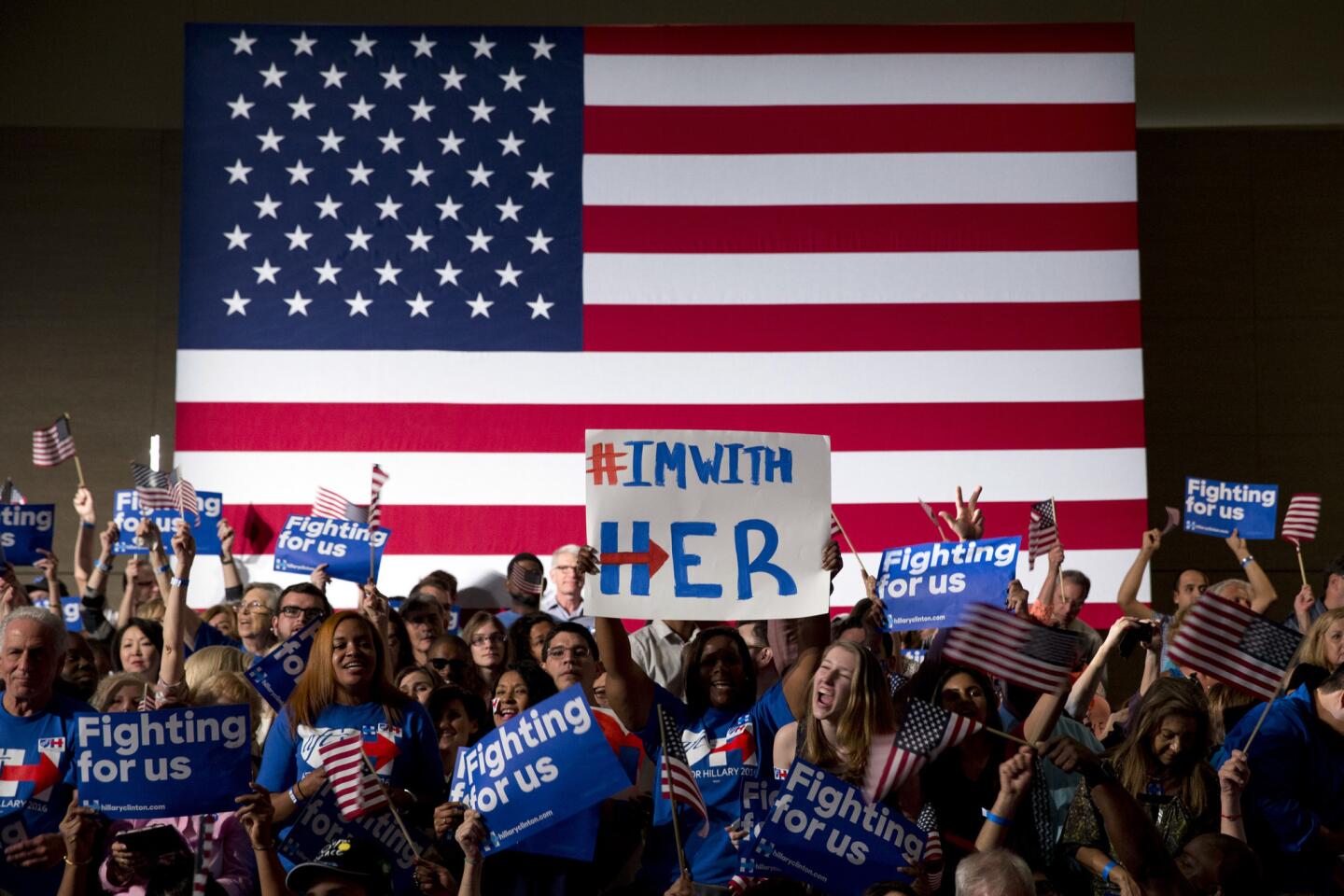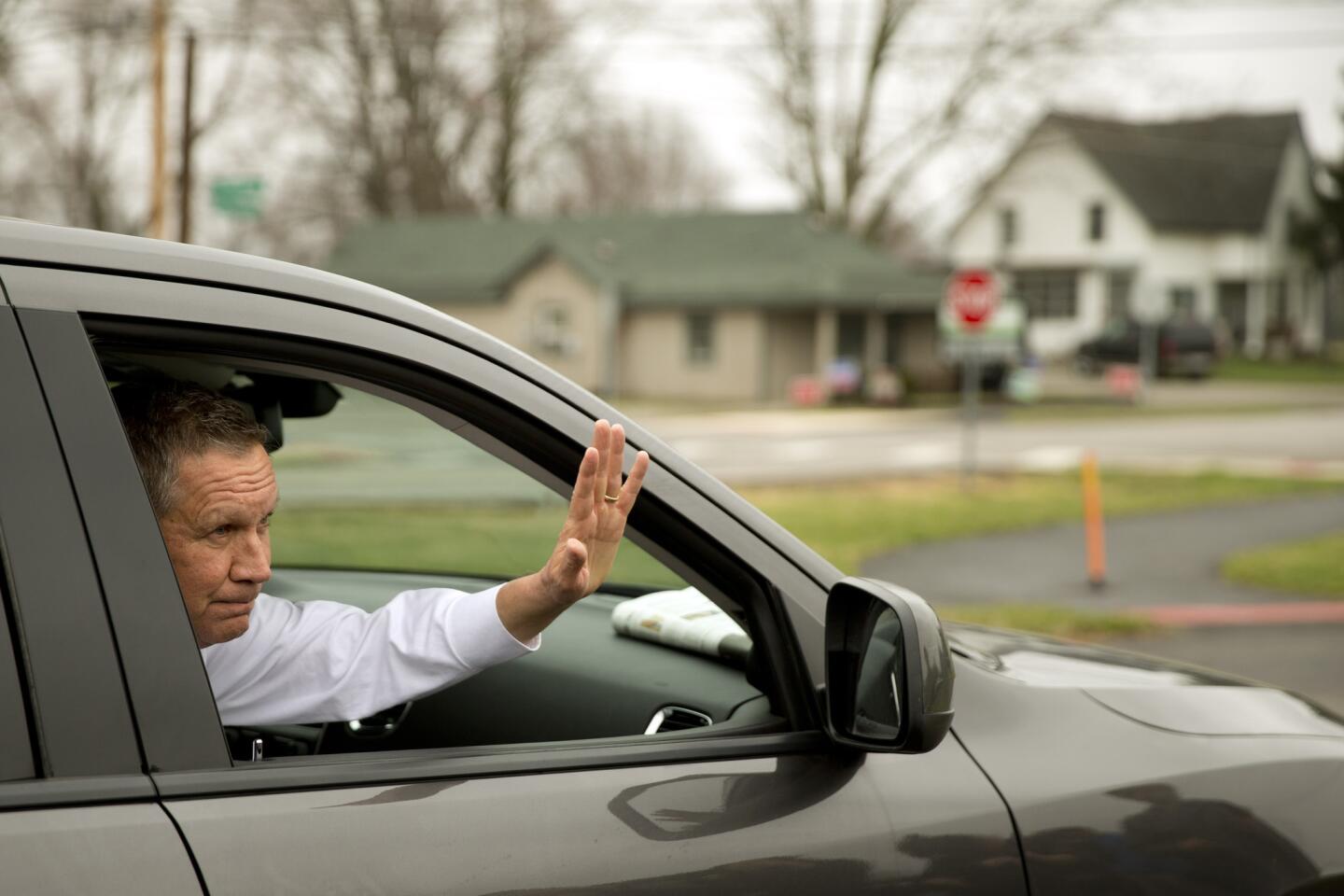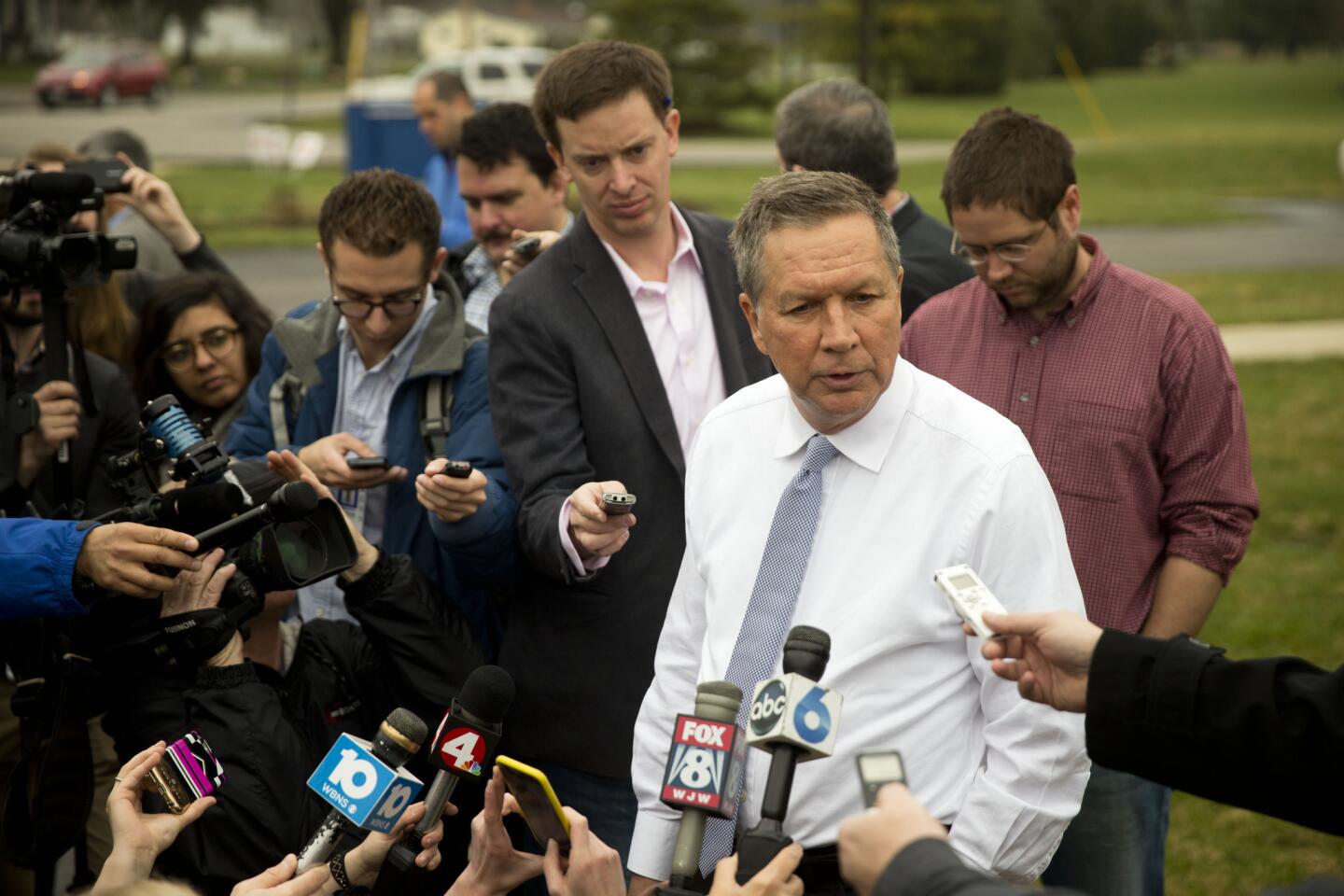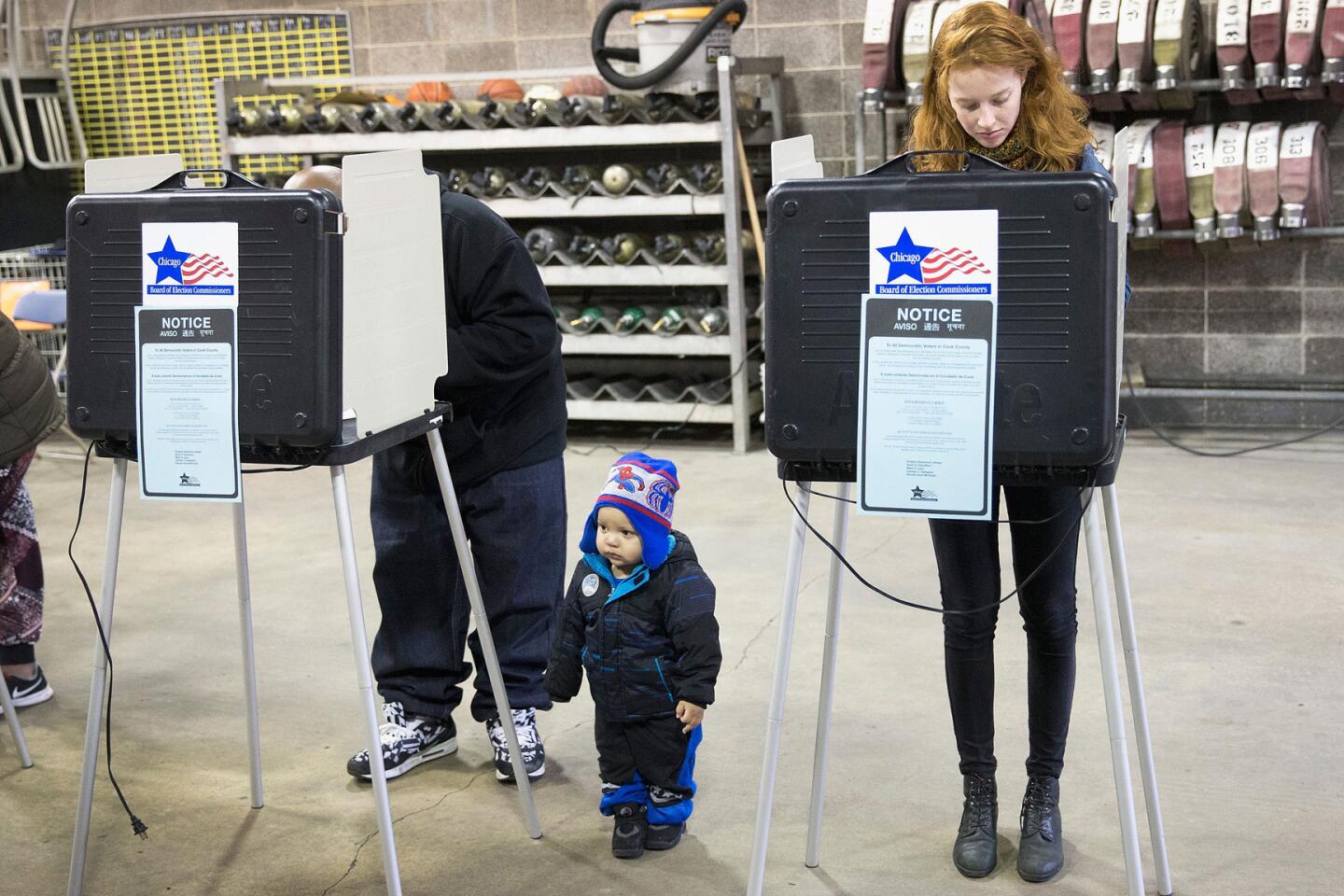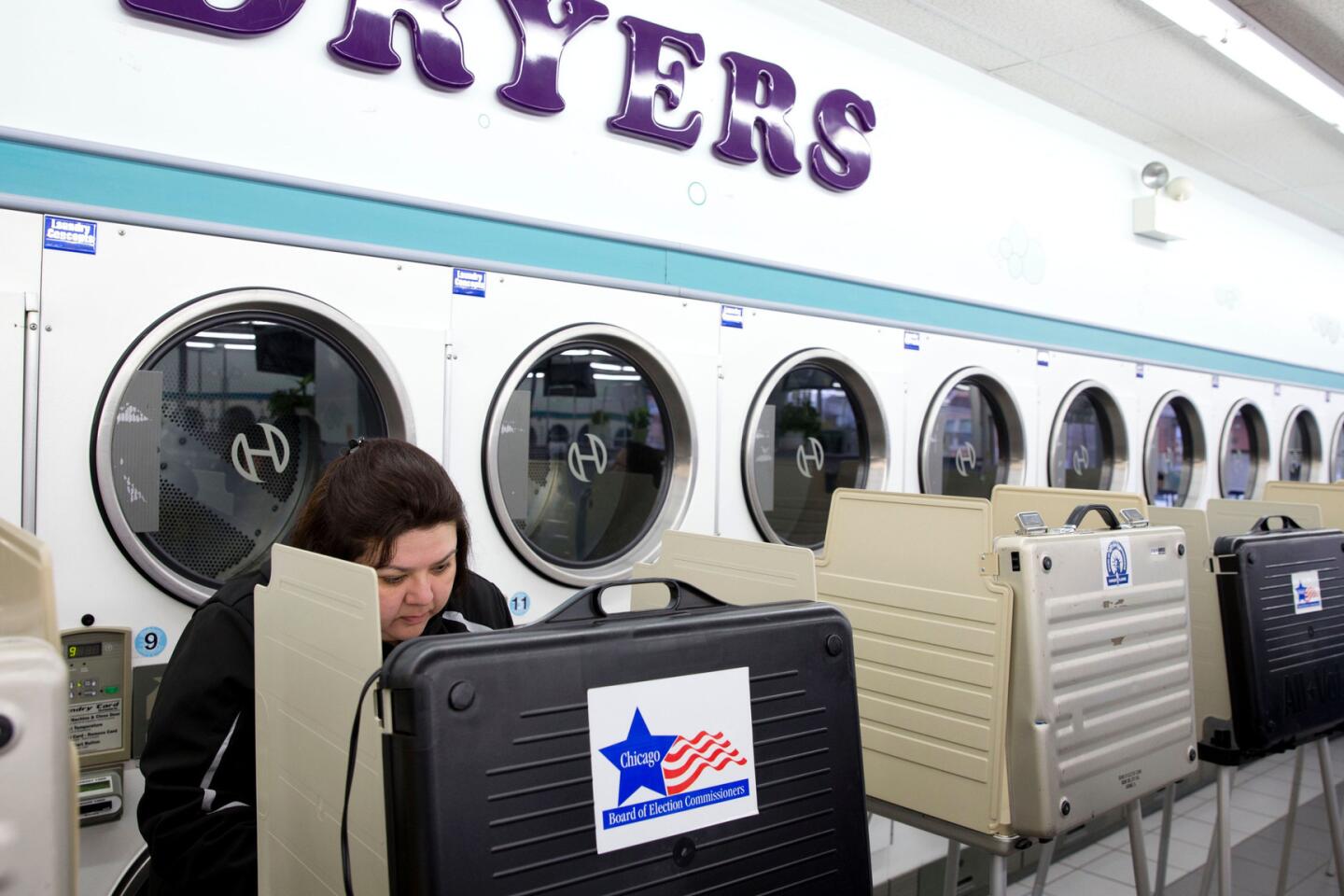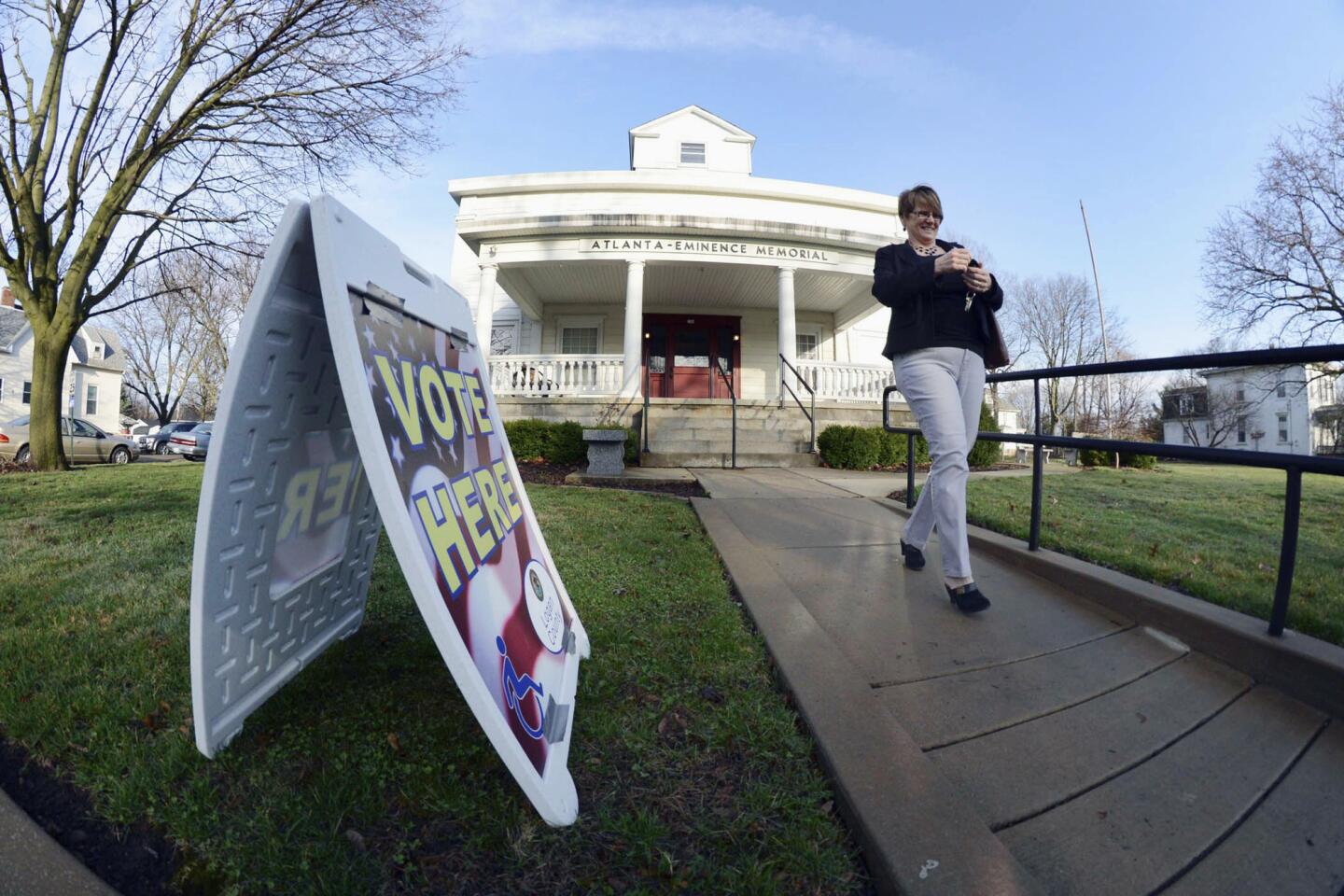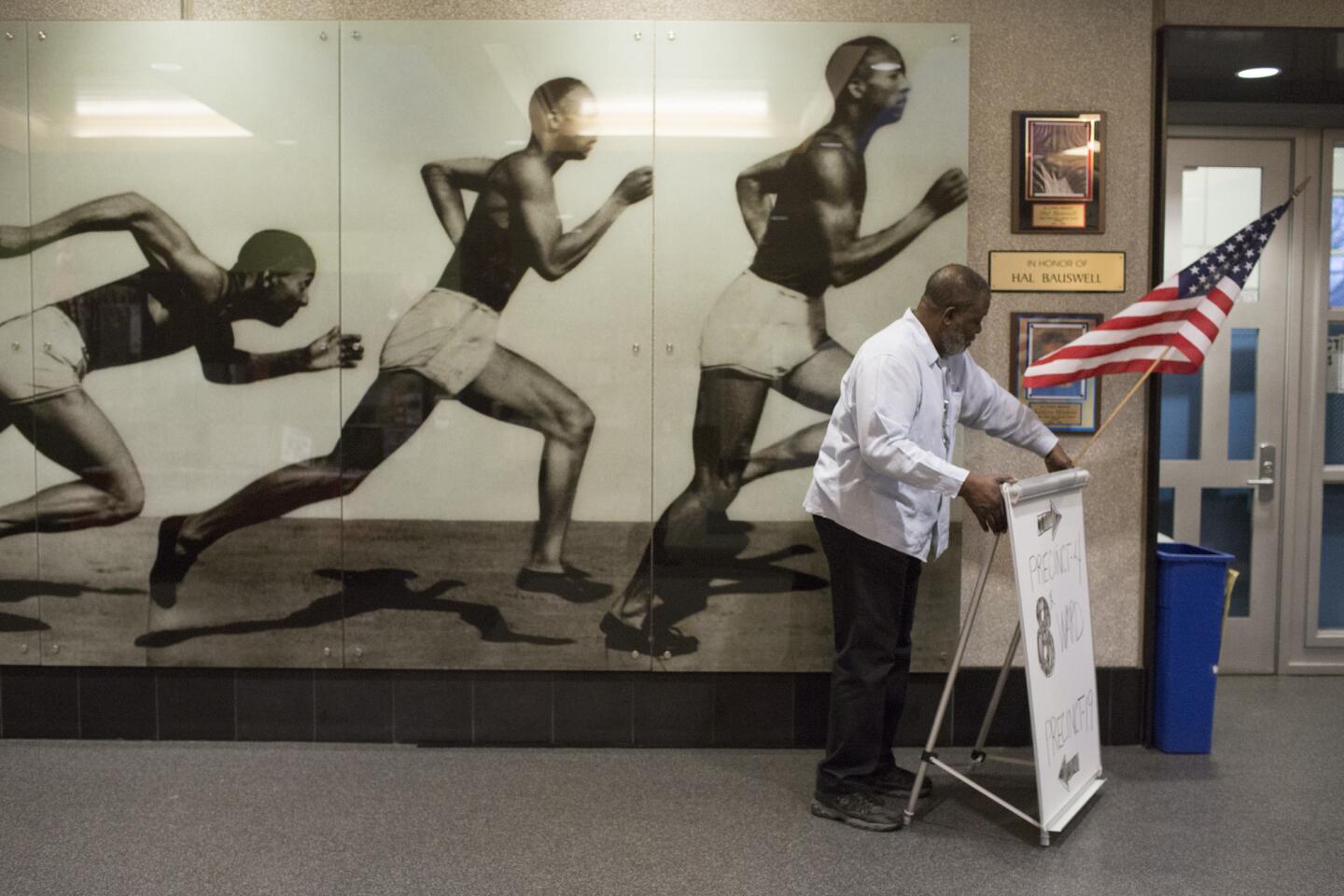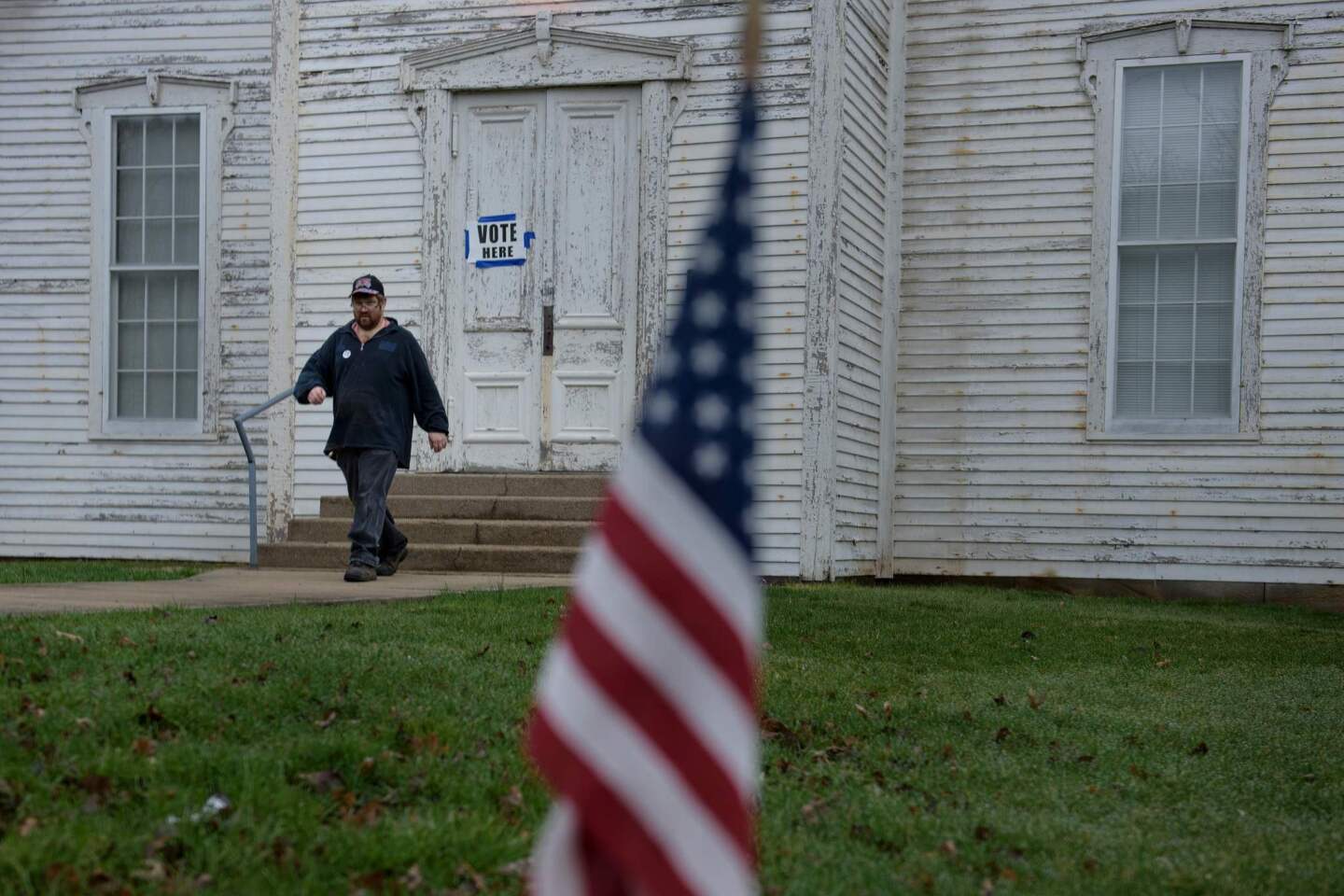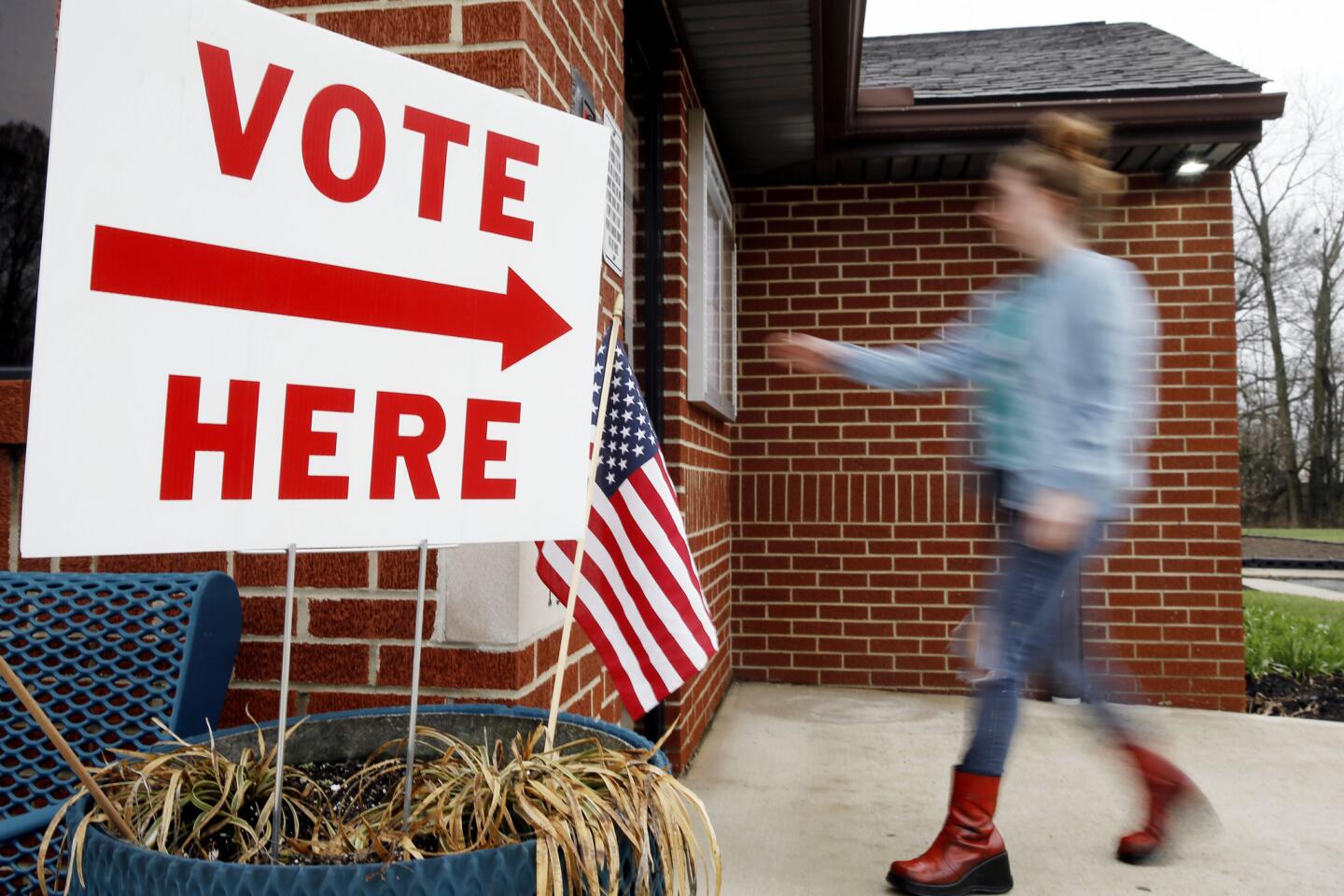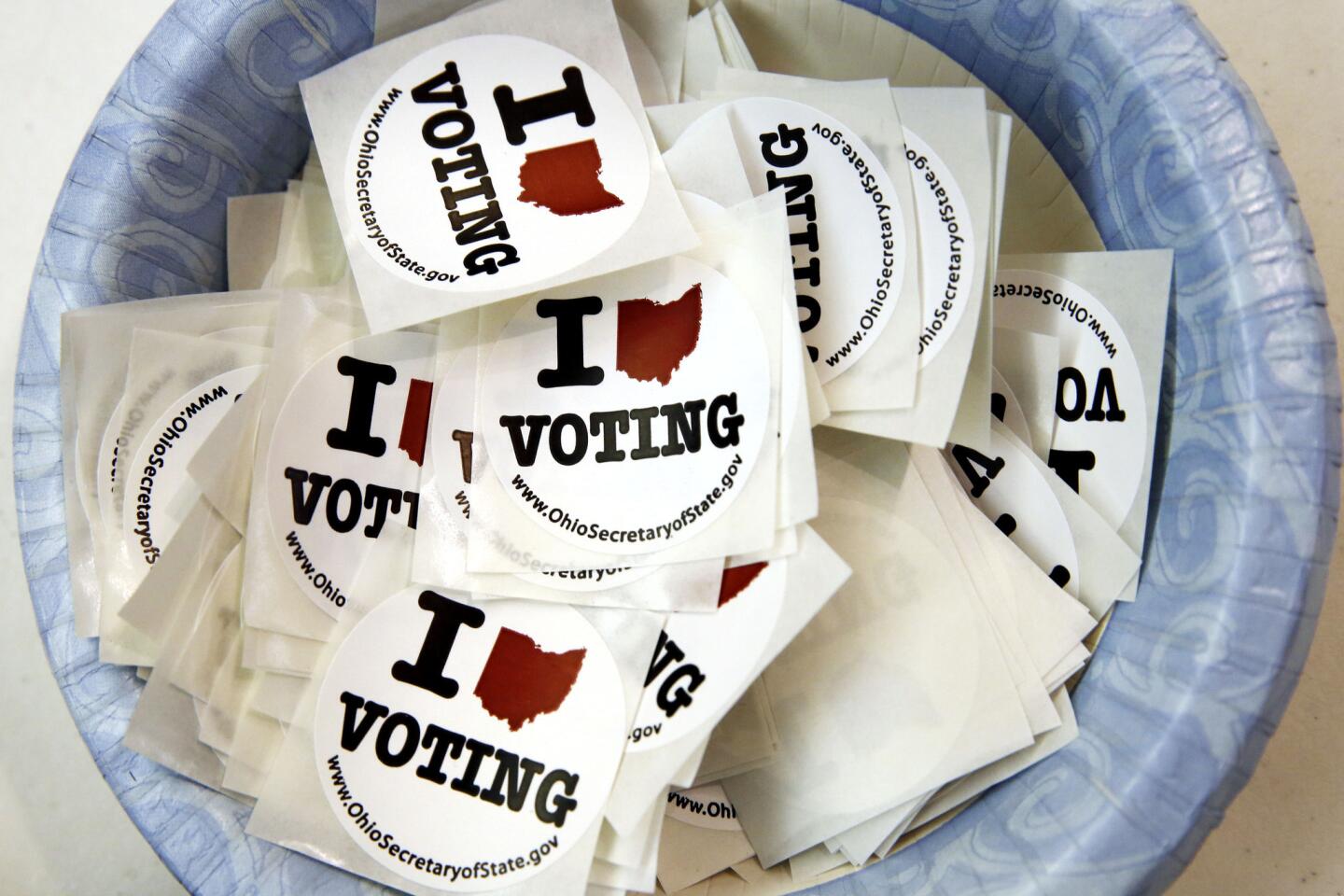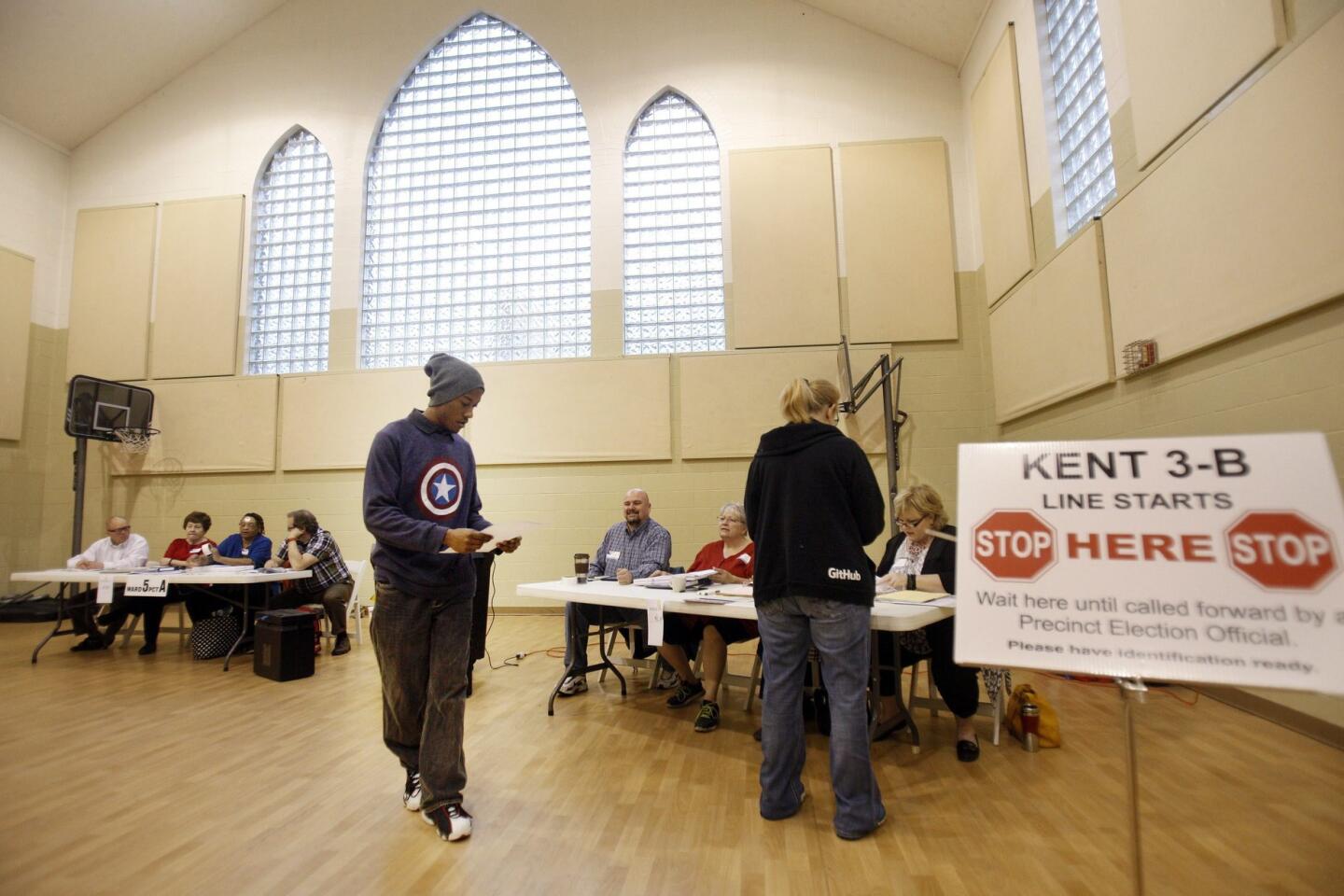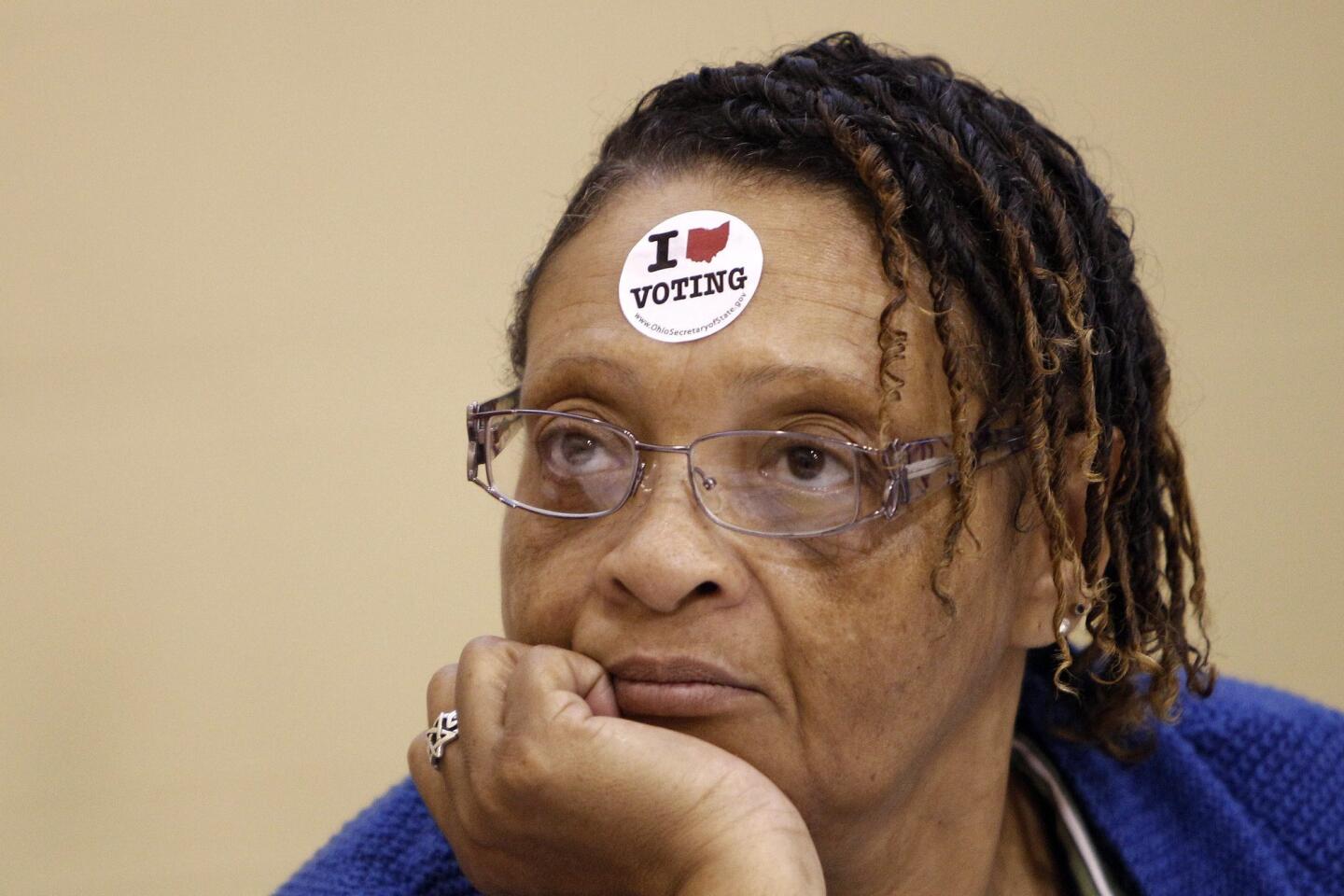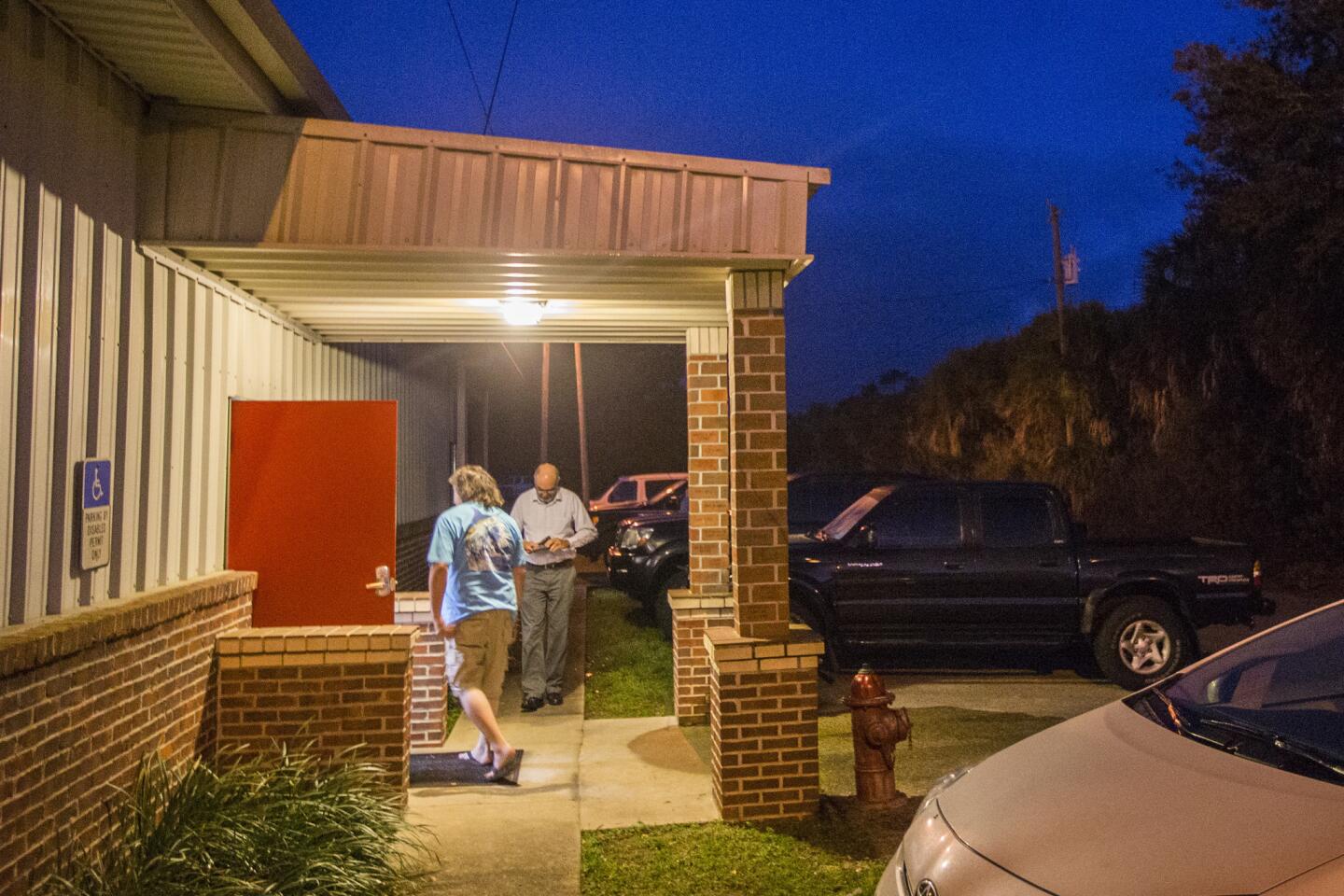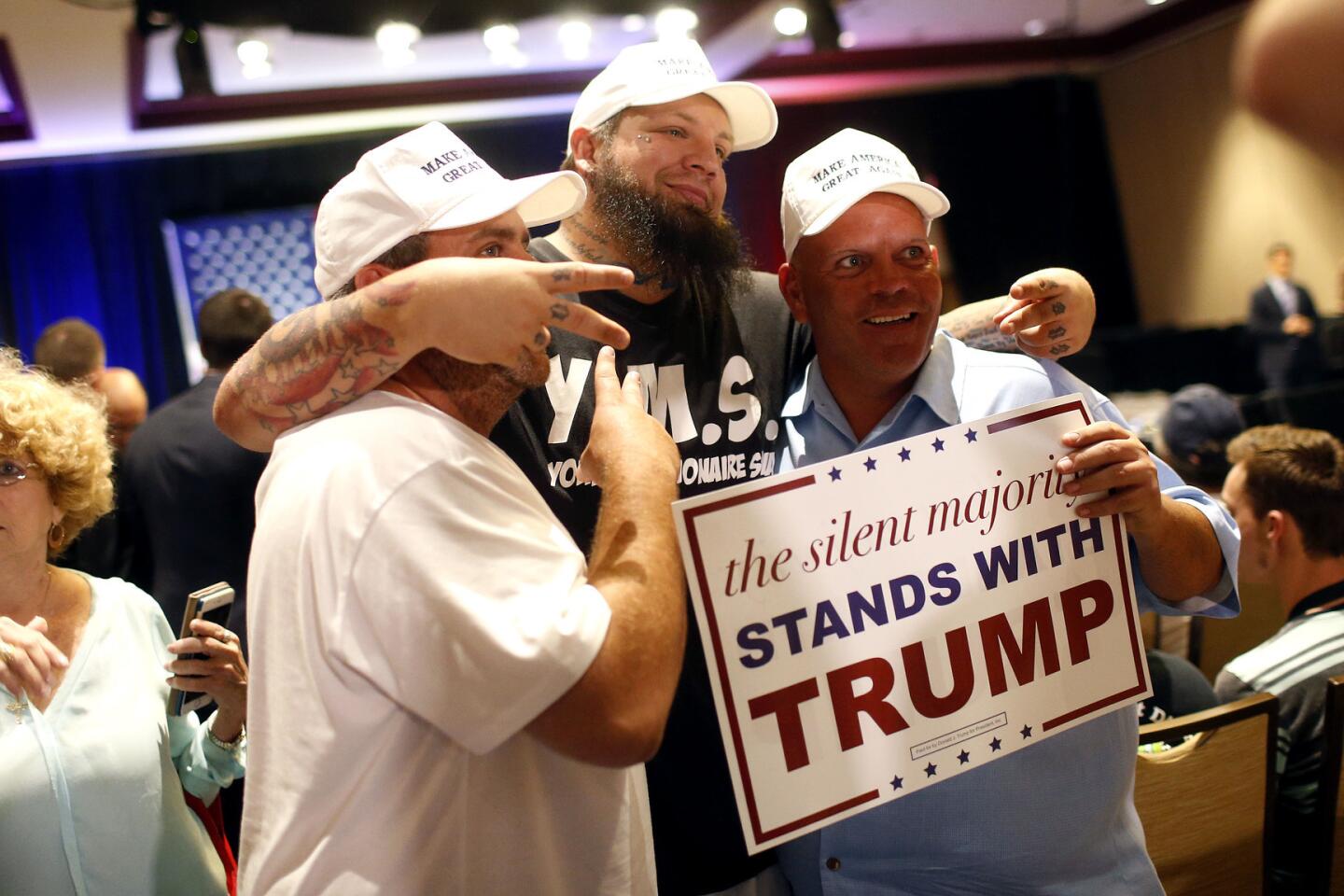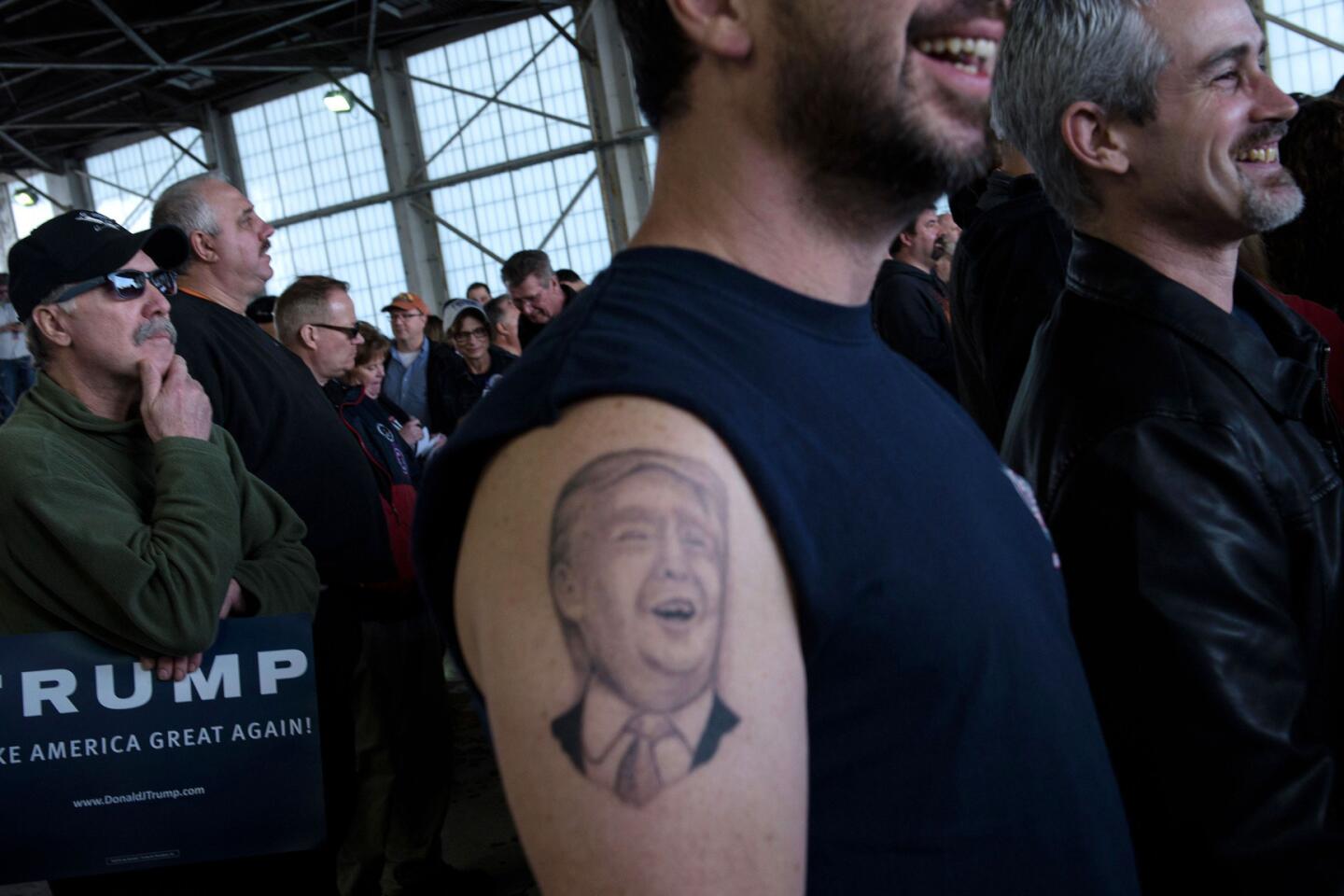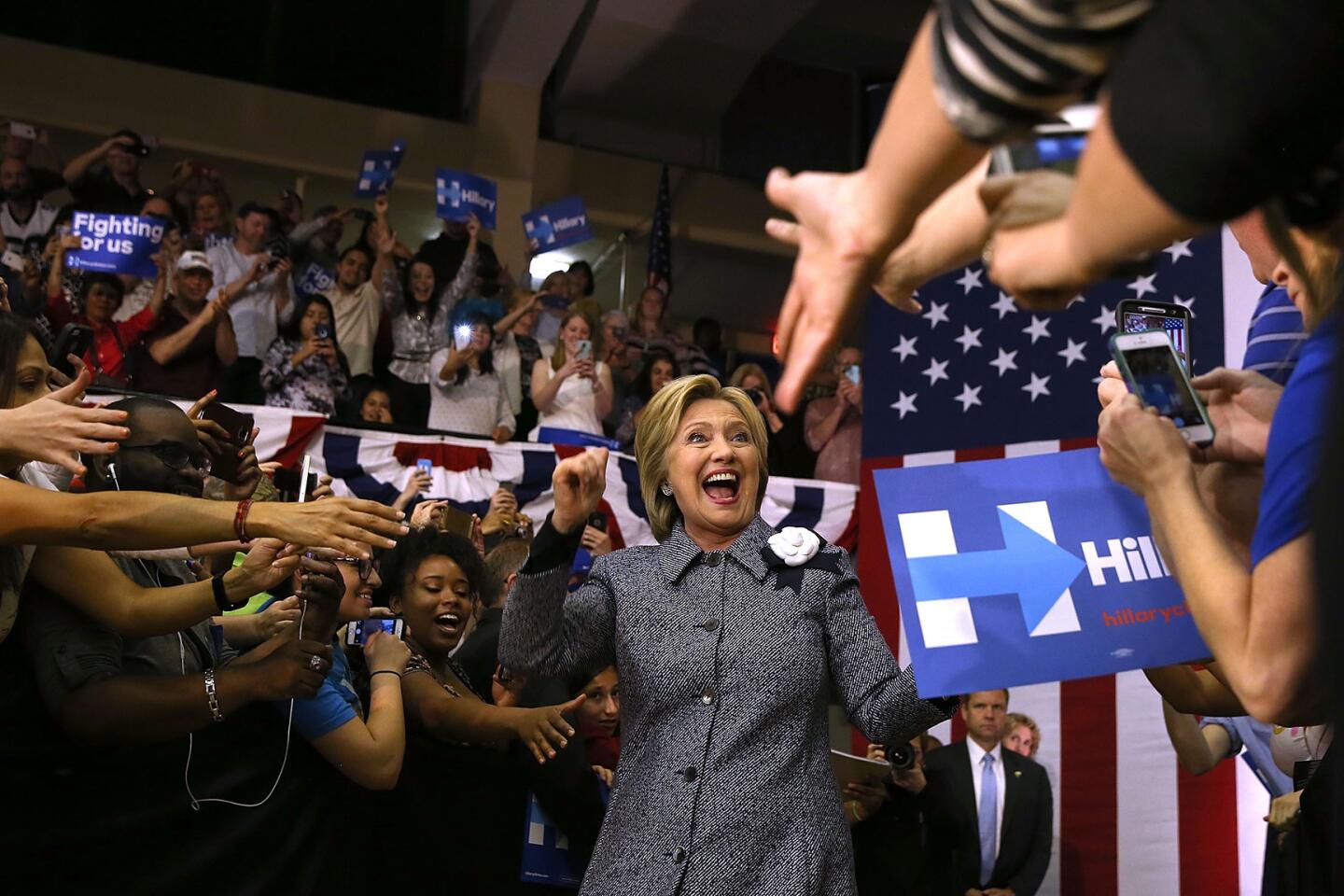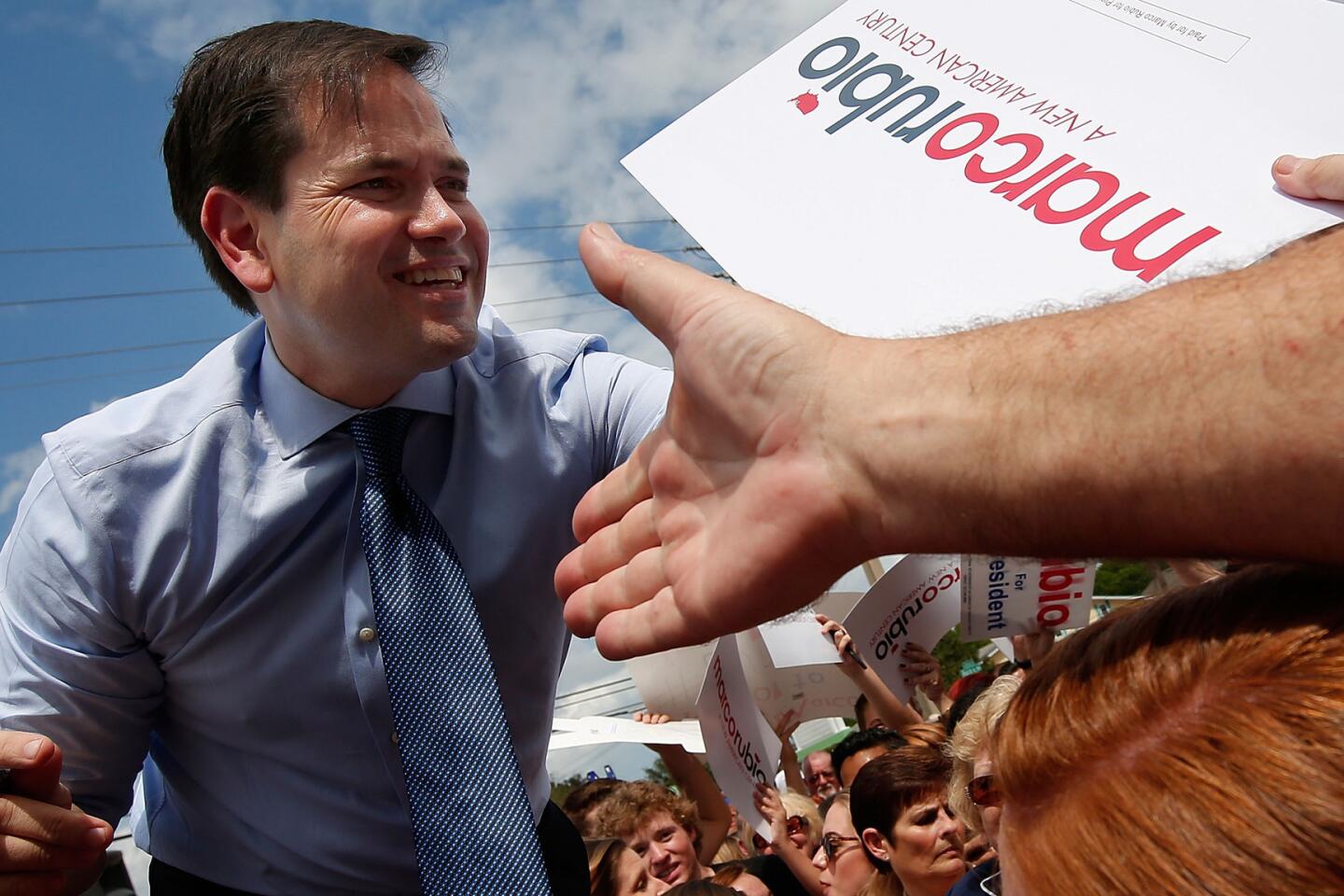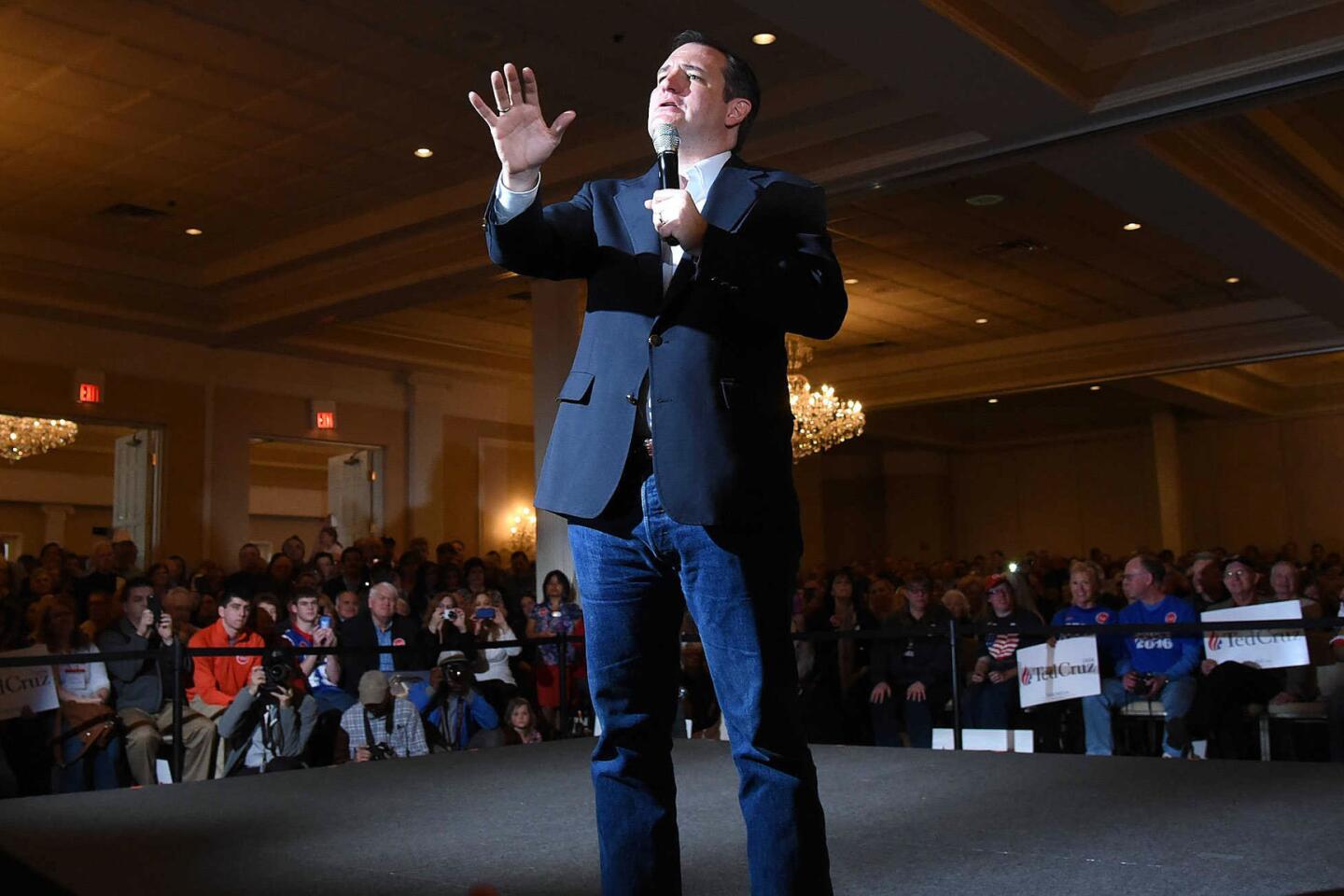Can Trump be stopped? 5 things to watch for in the big primaries Tuesday
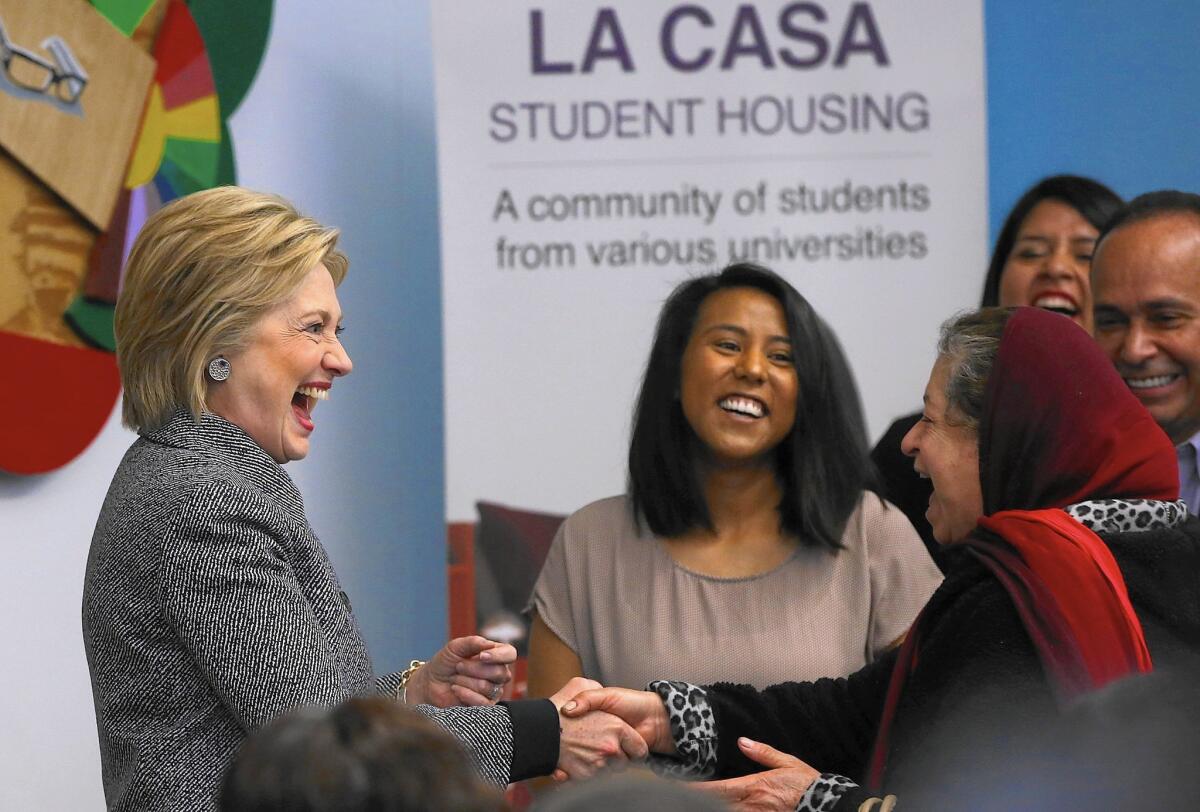
Hillary Clinton greets participants at an immigration workshop in Chicago on March 14. Protests over police violence in the city could indirectly hurt her because of her ties to Mayor Rahm Emanuel.
Donald Trump’s advance toward winning the Republican presidential nomination hits a crucial milestone Tuesday as voters in Florida, Ohio, Illinois, Missouri and North Carolina cast ballots in the first big primaries since violent clashes erupted last week at his campaign rallies.
For Hillary Clinton, Tuesday’s test will be whether she has sewn up the Democratic nomination tightly enough that she can turn more fully to the general election, or if she will need to rededicate herself to beating back her rival, Sen. Bernie Sanders of Vermont.
Election 2016 | Live coverage on Trail Guide | March 15 election results | Track the delegate race | Sign up for the newsletter
Here are some of the things we’ll be watching:
Can Trump be stopped?
The contests Tuesday will be the first to gauge the effect of millions of dollars in advertising against Trump. The scathing ads attacking his business record, personal temperament and liberal past were funded by wealthy Republicans who cringe at the prospect of Trump leading the party’s ticket in November.
The assault could be too late. Trump has already won 460 of the 1,237 delegates he would need to clinch the nomination before the party’s Cleveland convention in July.
Tuesday’s winner-take-all contests offer the biggest delegate prizes: 99 in Florida and 66 in Ohio. Polls have found Trump a strong favorite in Florida and just behind Gov. John Kasich in Ohio. Trump is also running well ahead of rivals in Illinois, where 69 delegates are at stake.
Trump will also be hard to beat in North Carolina, where 72 delegates will be divvied up. Missouri, with 52, is the least predictable.
What’s the effect of violence at Trump rallies?
The biggest unknown Tuesday is how voters react to racially charged fistfights that broke out Friday in a Chicago arena where Trump was going to hold a rally before thousands of protesters showed up and he canceled it.
The disturbing images played repeatedly on television over the weekend, along with video of a white Trump supporter hitting a black protester in the face a few days earlier in North Carolina, then threatening to kill him. The white man was arrested and charged with assault, and Trump said he might pay his legal bills.
The violence in North Carolina and Chicago led news organizations to string together video of Trump repeatedly condoning violence against protesters (“I’d like to punch him in the face,” he said of one in Las Vegas), even as he stated over the weekend that he does not condone violence.
In previous contests over the last six weeks, voters who made up their minds in the last few days before an election had tended to reject Trump, polls have found.
Will Marco Rubio drop out?
After losing nearly two dozen contests, Sen. Marco Rubio of Florida must win his home state to remain a viable contender for the nomination.
But that would require a sudden Trump collapse in Florida. Polls have found him running far ahead of Rubio.
A Florida loss would leave Rubio with no feasible path to overtake Trump in the chase for delegates, making it all but impossible to raise enough money to sustain his campaign.
Could Democrats see a Michigan repeat?
Clinton’s surprise defeat in Michigan on March 8 didn’t dramatically alter the math required for her to win the nomination — thanks to her big win in Mississippi, she won more delegates on the night — but it nonetheless scrambled the race. For starters, the result showed that public polls, which had Clinton up by double digits, were way off, raising questions about the accuracy of surveys showing her leading in other states as well.
Michigan also proved Sanders’ strength in a Midwestern industrial state. His strategy was to sharply criticize trade policies that he says have cost manufacturing jobs.
Sanders will try for repeat performances in Ohio and Illinois, where voters indicate some of the same anxieties about trade.
For her part, Clinton has announced new proposals intended to protect car manufacturers under the massive Trans-Pacific Partnership global trade deal in the works. But it’s unclear whether that will be enough in Ohio, a state that was among the slowest to recover from the Great Recession.
What will happen in Chicago?
Clinton has been able to count on strong support from black voters, winning their votes by big margins in Southern states like South Carolina and Mississippi. However, her advantage among black voters wasn’t as wide in Michigan, and now Sanders has set his sights set on Chicago.
The city has been riven by protests over police violence, especially the shooting death of 17-year-old Laquan McDonald, and much of the anger has been directed at Mayor Rahm Emanuel. In his appeals to activists, including black residents angry at the mayor, Sanders has called on Emanuel to resign. Clinton, whose ties to Emanuel date to his work in her husband’s presidential administration, has been more circumspect in her comments.
ALSO
Now it’s John Kasich’s turn -- Baby! Loser! -- for the Donald Trump treatment
Fight for blue-collar Ohio shows how Trump and Sanders are alike and different
Trump’s businesses would create unprecedented challenges in the White House
More to Read
Get the L.A. Times Politics newsletter
Deeply reported insights into legislation, politics and policy from Sacramento, Washington and beyond. In your inbox three times per week.
You may occasionally receive promotional content from the Los Angeles Times.
